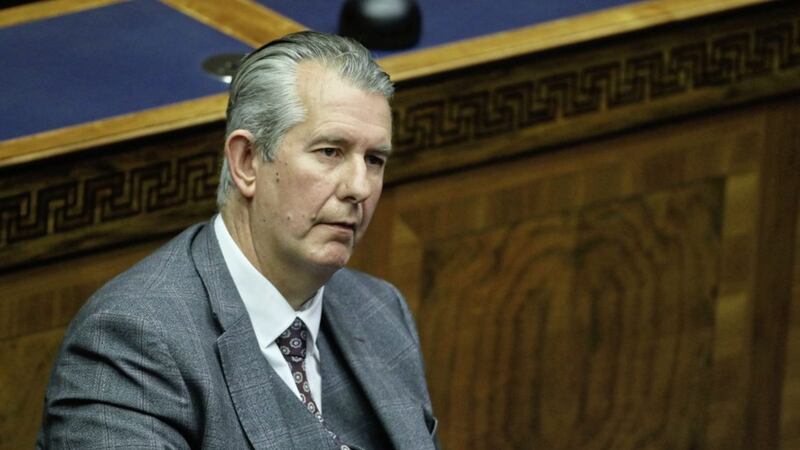If the DUP’s executive were to overturn last Friday’s recommendation from the party officers, that Diane Forsythe, rather than Edwin Poots, should be Jim Wells’s replacement in South Down, what message would it send to the broader electorate?
Coming hard on the heels of Doug Beattie’s recent tweet about Poots’s wife, along with some older tweets about women in general, voters couldn’t be blamed for thinking that unionism wasn’t really a warm house for women.
The reality, of course, is that Forsythe isn’t actually the problem. In 2017 she was the DUP’s general election candidate in South Down and upped the party’s vote by 9 per cent. Her 8,867 tally was 1081 more than Wells's vote in the assembly election a few months earlier. The party whip had been removed from him in May 2018 (nothing to do with her) and Wells already knew that he was not going to be selected as the candidate (again, nothing to do with her).
Meanwhile, over in Lagan Valley, the DUP had another problem. The chances of three high-profile candidates (Jeffrey Donaldson, Edwin Poots and Paul Givan) all winning seats was slim: slim enough for a series of conversations to decide how the problem could be resolved. Even though Donaldson has personal and political roots in South Down any decision to stand there might be construed in one of two ways: as leader he wasn’t strong enough to face down Poots and Givan (very close friends); or he was afraid that he would be the losing candidate if all three stood.
Givan doesn’t have the same roots in South Down. More important, he had topped the poll in the 2016 and 2017 assembly elections. So, it was Poots who needed to find a new seat and Wells (he and Poots are close) was keen for him, rather than Forsythe, to be his successor. His argument is that Poots has a long track record of electoral success and that he’s “extremely well known throughout the party at every level. He has the personal contacts and, as minister of agriculture, he has been around lots of rural areas where he has met groups of farmers and has built up a very good reputation in rural areas and that’s where a lot of the party executive delegates are coming from.”
Now, all of that may be accurate, but it would apply to about ten of Northern Ireland’s constituencies—most of which have significant rural areas. Could Poots not look at one of those? And if you’re going to prioritise candidates with good electoral track records, how do you ever encourage new blood into the DUP? Indeed, why would young people interested in a career as a representative bother joining the party?
Fair enough, Forsythe hasn’t ever won an election. But she has only stood once, in 2017, and boosted the DUP’s vote quite considerably. Wells even described her as “an excellent candidate in every respect.” She comes from a political family. Her chances of retaining Wells’s seat seem fairly high. As a young mum she also brings something to the party it hasn’t had before in that seat. So, other than trying to find a seat for Edwin Poots, why would anyone want to overturn the recommendation of the party officers that she should be the candidate?
Some of Wells’s supporters, including Roland Wilson, chair of the South Down association, point to Forsythe’s perceived liberalism (an issue which wasn’t raised as an objection to her candidacy in 2017): “Jim Wells is more of a traditional candidate and people running the party are more liberal in their views now. I am of a Christian viewpoint and it seems this is part of a fight to make the party more liberal.” Wells himself has said that liberals being elected for the party 20 years ago was ‘unimaginable’.
Maybe that’s what this battle is all about? Not just a competition between supporters of two candidates for a nomination (and I’ve witnessed a lot of those during my time in party politics), but a battle between the traditional and liberal wings of the DUP? If it is the latter, then the outcome of the tussle (which I think is due to be decided next Friday) could have a significant impact on the DUP’s electoral fortunes. It will also have an impact on Donaldson’s leadership, because he will have to take a side.
Ironically for Donaldson he has been in this position before: although at the time he was in the UUP and being refused permission by the party officers to be a candidate in the 1998 assembly election—because he didn’t support the Good Friday Agreement. He, more than most, knows what happens when a party is riven by internal divisions and the leader has to be seen to take a side. Backing Poots brings him one headache. Backing Forsythe brings another. One way or the other he’s going to be needing paracetamol fairly soon.








